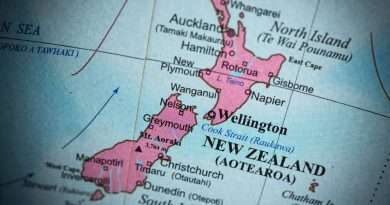Turkey’s Economic Resilience: Why Investing in Turkey Makes Sense
Turkey, often referred to as the “bridge between East and West,” has emerged as an attractive destination for international investors seeking opportunities at the crossroads of two continents. Its strategic location, diverse economy, and favorable business climate make it a gateway to both the Middle East and Europe. In this article, we will delve into the reasons why investing in Turkey can be a smart move and how it can serve as a bridge to two lucrative regions.
Strategic Geographical Location
One of Turkey’s most compelling assets is its strategic geographical location. Situated at the crossroads of Europe, Asia, and the Middle East, it serves as a natural bridge connecting these regions. Turkey’s proximity to major markets in Europe, including the European Union (EU), and its accessibility to Middle Eastern markets make it an ideal location for businesses looking to expand their reach. Turkey’s geographic advantage not only facilitates trade but also offers logistical benefits for companies engaged in global supply chains. The country’s well-developed transportation infrastructure, including ports, airports, and highways, further enhances its role as a hub for the movement of goods and people.
Access to the Middle Eastern Markets
Investing in Turkey provides businesses with a convenient gateway to the Middle East, a region rich in economic potential. Turkey shares borders with Iraq, Syria, and Iran, making it an ideal base for companies looking to enter these markets. These countries offer diverse opportunities in sectors such as energy, construction, healthcare, and consumer goods. Additionally, Turkey’s strong historical and cultural ties to the Middle East can provide a valuable bridge for building relationships and navigating business environments in these countries.
European Union Integration
Turkey has been engaged in a customs union with the European Union since 1995, fostering strong economic ties and facilitating trade between the two regions. This relationship allows Turkish companies to export their products to the EU without tariffs or quotas, making it easier for businesses to access the European market. For international investors, Turkey’s proximity to the EU presents an opportunity to establish a presence in the world’s largest single market, which can serve as a springboard for further expansion across Europe.
Diverse and Growing Economy
Turkey boasts a diverse and resilient economy that spans various sectors, including manufacturing, services, agriculture, and technology. This diversification has contributed to its economic stability and ability to withstand global economic fluctuations. Key industries such as automotive, textiles, and electronics have seen significant growth, while emerging sectors like technology and renewable energy offer promising investment opportunities. With a population of over 82 million people, Turkey also represents a substantial consumer market.
Investment Incentives and Reforms
The Turkish government has implemented various incentives and reforms to attract foreign investment and improve the business climate. These initiatives aim to simplify administrative processes, reduce bureaucracy, and enhance transparency. Additionally, Turkey offers tax incentives, grants, and financing support to foreign investors in specific sectors. The Investment Support and Promotion Agency of Turkey (ISPAT) serves as a one-stop shop for international investors, providing guidance and assistance throughout the investment process. These efforts have made Turkey more appealing to businesses seeking to establish or expand their operations.
Skilled and Competitive Workforce
Turkey is home to a young, educated, and skilled workforce. Its universities produce a large number of engineering and business graduates each year, making it possible for companies to access a pool of talent. Labor costs are competitive compared to many Western countries, providing a cost-effective advantage for businesses.
Infrastructure Development
Turkey has made significant investments in infrastructure development, including transportation, energy, and telecommunications. The expansion of airports, highways, and ports has improved connectivity and reduced logistics costs for businesses. Additionally, Turkey is investing in digital infrastructure, which is crucial for industries such as technology, e-commerce, and finance. High-speed internet access and a growing digital ecosystem are further enhancing Turkey’s appeal to tech-oriented investors.
Robust Financial Sector
Turkey boasts a well-developed and modern financial sector, with numerous domestic and international banks operating in the country. Istanbul, Turkey’s largest city, is home to a thriving financial district. The stability and sophistication of the financial sector make Turkey an ideal location for investment and banking operations.
Conclusion
Investing in Turkey provides a gateway to the Middle East and Europe, offering businesses access to two dynamic and diverse regions. Its strategic location, diverse economy, integration with the EU, investment incentives, and skilled workforce make it an attractive destination for international investors. However, like any investment, entering the Turkish market requires careful planning, due diligence, and a deep understanding of local business practices and regulations. Partnering with local experts and organizations such as ISPAT can help streamline the process and ensure a successful investment journey in Turkey. As Turkey continues to develop and modernize its economy, it remains a bridge between continents, connecting businesses to opportunities in the Middle East, Europe, and beyond. For those seeking to expand their global footprint, Turkey’s potential as a strategic investment destination is worth exploring.
Also read: The Role of Small Businesses in New Zealand’s Economic Landscape



